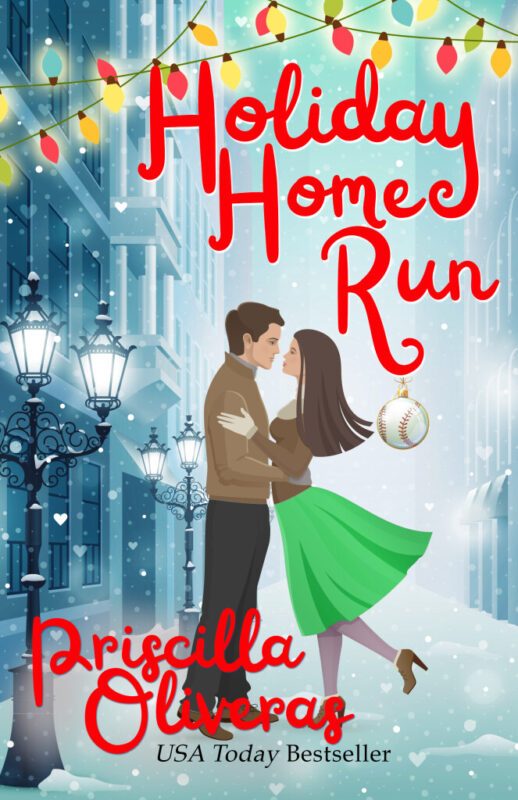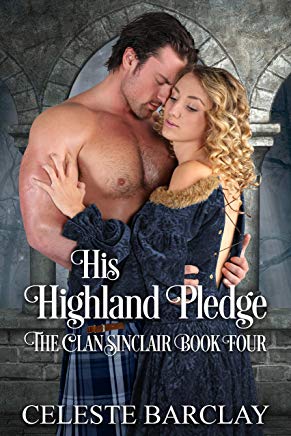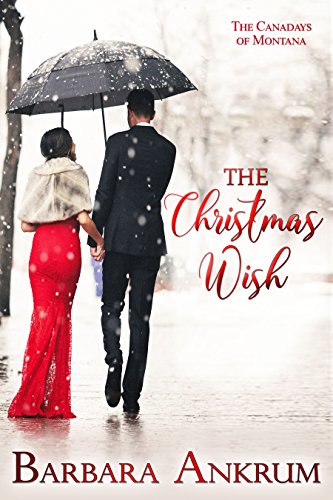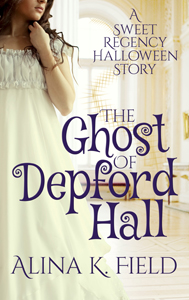Signs and Dart Guns
July 18, 2020 by Kidd Wadsworth in category Writing tagged as humor
You know those signs on doors? One says “In” and one says “Out”? But exactly half of the time, I think those signs are wrong. Stay with me here. Aren’t you always going “In”? If you’re always going thru the door, and you can’t go thru something unless you’re “In” it, you should always be going “In”. I mean, theoretically, you could be going “Out” once you’ve passed the halfway point. But unless we want the signs to electronically change when we pass exactly halfway over the threshold, we should always go “In” the “In” door, regardless of whether we are entering or leaving a building because we are always going “In” the door itself. These subtleties appear to be lost on sign makers. Many times I’ve been inside a building and I’ve tried to exit by the “In” door. Nope, won’t budge. Inevitably, a bunch of well-meaning people will point to the “In” sign over my head. Yeah, like I didn’t see it!
I’ve had a love/hate relationship with signs most of my adult life. Take those diamond signs that classify chemicals. You know, the ones that say things like hazardous or oxidizer. I love those signs. I think we should use those signs to classify people. The friend who whispers about you behind your back—Toxic. The boss that plays video games on his computer all day. Obviously, an inert substance. How about the person that keeps nagging and nagging until you give in? Corrosive. Then there’s my neighbor—Irritant. Know anyone that’s explosive? I think we should abolish the entire field of psychology and just hire those sign guys to observe people and stick colored diamonds on everyone’s forehead.
But more than bad signage I detest bad drivers. That’s why, in addition to changing half of the “In” and “Out” signs, and hiring thousands of chemists to observe and classify the population, I believe every licensed driver should be issued a traffic dart gun. Here’s my idea. When you get your driver’s license, the state would give you a dart gun with three darts. These darts would have super strong suction cups on the end. When you see someone committing an obviously stupid, illegal, driving maneuver, you’d pull out the ole dart gun and stick one to the offender’s car. Three darts; automatic ticket. See a car with fifteen darts on it? Hey, it’s time to pull over, get out of the way, and let that dude drive on by. I’d even be willing to pay for my dart gun. Wow, a new source of revenue for the state. Need more darts? Make your check out to the IRS.
Why am I telling you all these things? Haven’t you guessed? November is coming up. I’m running for office. Yes, you too can have correct signage and dart guns! Vote for Kidd Wadsworth.
2 0 Read moreTrash Day by Kidd Wadsworth
October 18, 2019 by Kidd Wadsworth in category Infused with Meaning by Kidd Wadsworth tagged as humor, trash day
My neighbor, Sterling, complains. It seems I don’t bring my trash cans up promptly. But hey, I’ve got a life, and they’re TRASH CANS!
I’ve got a big brain, too. One morning as I watched Sterling take his trash to the curb and leave for work, I got an idea, a how-the-Grinch-stole-Christmas-idea. I grinned and patted my little dog on the head.
As the garbage truck rounded the corner, I ran down to the curb and drug my neighbor’s still-full garbage cans back up his driveway. When the truck had passed by, I drug them down again.
That evening, eager to see Sterling’s expression, I left work early and returned to find him standing at the curb gazing bewildered at the trash still in his trash cans while mine, and everyone else’s, were clearly empty. The next week he put his heaping cans at the curb. Quickly, I once again, hauled them back up his driveway, returning them to the curb when the garbage truck had passed.
That night his shouting rocked the neighborhood. “No, they’re not picking up my trash! It’s been two weeks! 110 Paxinosa Avenue!” I felt sorry for the trash guys. Well—almost.
The next week he had two cans full of trash and three extra bags. It was a trash party! I crossed my fingers, praying he wouldn’t wait around for the truck. He paced on the sidewalk, but after several glances at his cell phone he got in his light blue Prius, and drove away. I’d barely gotten the trash up his driveway when I heard the truck pull around the corner. On a hunch, I stowed the cans inside his garage and snuck out the back gate.
Wow, talk about dedicated. Those garbage guys actually walked up his driveway and looked around for the cans. They clearly had a note in their hands. They checked his address. Knocked on his door. All this for trash. Impressive.
When they left, I put the cans and the bags at the curb. Took two trips. That night a volcano erupted next door. I felt a little guilty—not a lot guilty—but a little guilty. I mean, I felt guilty in between giggles.
On trash day eve, nightmares of my neighbor assaulting me with a garbage can lid and a turkey bone rocked my sleep. I woke bleary eyed, to see my neighbor standing at the curb, surrounded by trash. I decided it was time I fessed up. About then the garbage guys arrived. I ducked behind my window curtains. It was ugly! The shouting, the claims of innocence, “There was no trash!” Shall I speak of the birds shot in the air, the words beginning with…well you get the picture.
About a week later, my neighbor had a backyard barbeque. I brought beer. There were four of us neighbors (right, left and across the street), beers in hand, feet on Sterling’s brick retaining wall, when Sterling told the story.
“No?”
“Really?”
I thought no one knew. But everyone has windows facing the street. When Sterling went inside for more chips, Frank winked at me. Mark held out his hand. “Fifty, or I tell him now.”
I paid.
*
Occasionally, I try humor. Let me know if I got it right.
An Interview with Romance Author Maureen Child
August 2, 2017 by Jann Ryan in category Jann says . . . tagged as Harlequin, humor, Maureen Child, romance Bestselling writer Maureen Child is a native Southern Californian now living in the mountains of Utah. She’s the award-winning writer of more than 150 books and novellas. A seven time finalist for the RITA, Maureen’s books have won the Golden Quill, the Prism and the National Reader’s Choice Award.
Bestselling writer Maureen Child is a native Southern Californian now living in the mountains of Utah. She’s the award-winning writer of more than 150 books and novellas. A seven time finalist for the RITA, Maureen’s books have won the Golden Quill, the Prism and the National Reader’s Choice Award.
One of her books, A POCKETFUL OF PARADISE was made into a CBS-TV movie called THE SOUL COLLECTOR.
And as much as she loves Utah, she really misses her friends and the monthly meetings at OCC. For more information about Maureen and her novels please visit her on her Facebook page https://www.facebook.com/maureenchild/
Jann: Today, I have the pleasure to welcome Romance Author, Maureen Child, to A Slice of Orange—and OCC misses her as well.
Do you find yourself returning to certain themes in your stories? What? Why?
Maureen: I don’t know if it’s a ‘theme’ or not, but I do find myself always returning to humor. Even in my darker books—examples, the books I wrote for Harlequin Nocturne or the Witch books I wrote for NAL. As dark as those themes were, humor kept encroaching on the story.
I think it’s because I do believe that everyone needs laughter as much as love. And maybe in those dark moments when writing, I need the light-heartedness as much as my reader might!
Jann: What’s the best writing advice you ever received?
Maureen: Actually the very best advice was something I heard at an OCC meeting about 24 years ago! Susan Phillips was giving a workshop and while she had a lot of great information that day, one phrase stuck with me.
“There is no substitute for persistence.” That sort of became my mantra. Because at the heart of it, that’s all that matters. Persistence. The determination to never quit, never walk away. To keep trying no matter what, to reach the goal you’ve set for yourself.
I still hear a lot of people say, “Oh, I’ll write a book someday.” Those people never will. To be a success at something, you have to love it and you have to put the time in and you have to never stop trying.
Jann: Have you ever suffered writer’s block? If so, how did/do you get past it?
Maureen: Actually, I don’t believe in Writer’s Block. Are there times when the well is dry? Sure. Are there days when I just don’t think I can write a word? Absolutely. Heck, there are times I want to take a hammer to my laptop!
But you write anyway. Even if you end up deleting it all the following day, you write. Because that’s what we are. That’s what I am. Writing is a job. It’s a great job, but it’s still a job. The hardest part for me is the self-discipline and I’m still struggling with it after more than 150 books!
But I have responsibilities. Deadlines. When you sign a contract you make a promise to deliver that book. And before you have a deadline with a publisher, give yourself one and stick to it. Do your pages every day even if they suck. You can always fix them later. Having ‘writer’s block’ is not an excuse for not working. I do understand that some writers can’t work past the bad days and it’s a personal thing, true. But not going to work because you don’t feel your best is just not the route I’ve ever gone.
Always remember that writing is your job and treat it like that.
Jann: What’s the best thing about being an author?
Maureen: For me, the best thing about being a writer is that I can do it by myself in my house. Wow that really sounds unsociable. But you know, most of the writers I know ARE. J We’re drawn to words. We’re drawn to people watching, studying the way strangers move and interact so we can go home and describe it. We watch a sunset and put together words in our minds to paint a vivid picture.
So in the morning when I get my coffee and go sit on my couch with my laptop, I’m officially in my ‘office’. I actually have an office that houses collections of awards and certificates and whatnot, but never sees ME. J When it’s nice out, I take the laptop to the deck and write out there. I don’t have to play well with others in my job, because I am my job. It’s perfect. Even the bad days.
Jann: What sound or noise do you love?
Maureen: I love the sound of babies laughing. That deep down from the belly laughter that just bubbles up into the air and reminds you that life should be fun.
Jann: What sound or noise do you hate?
I hate sirens. They mean that someone’s in trouble, or needs help and I worry about them. J
It was great getting to catch up with you Maureen and wish to thank her for taking the time to answer our questions. If you have any questions or comments for Maureen, please use the comment form below.
Jann Ryan
 Jann Ryan grew up with the smell of orange blossoms in Orange County in sunny Southern California, where she has lived her entire life and dreamed up stories since she was a young girl. Never an avid reader, she was in her thirties when she picked up her first romance quite by accident. She fell in love with happily ever after and has been reading romances ever since.
Jann Ryan grew up with the smell of orange blossoms in Orange County in sunny Southern California, where she has lived her entire life and dreamed up stories since she was a young girl. Never an avid reader, she was in her thirties when she picked up her first romance quite by accident. She fell in love with happily ever after and has been reading romances ever since.
Wanting to put pen to paper, Jann joined of Romance Writers of America®. Currently, she is working on a romantic suspense series set in Stellar Bay, a fictitious town along the California central coast to fulfill her publishing dream.
An Up Close and Personal Interview of Kitty Bucholtz
June 9, 2013 by Marianne H. Donley in category Archives tagged as Author Interview, humor, Kitty Bucholtz, light urban fantasy, romantic comedyKitty Bucholtz is the author of the romantic comedy Little Miss Lovesick and the light urban fantasy Unexpected Superhero. Though she grew up in Northern Michigan, the setting for many of her stories, she followed her husband to Australia twice. While he made a penguin named Mumble dance, she earned her MA in Creative Writing in Sydney. When she’s not unpacking or repacking, she’s working on her next book or chatting with readers on Facebook.
Kitty was interview by long time OCC/RWA member Marianne H. Donley.
Marianne: First question, do you find yourself returning to certain themes in your stories? What? Why?
Kitty: It’s funny you should ask because I discovered one theme a couple years ago, but I discovered a secondary theme while writing my book, Unexpected Superhero. After several years of writing, I finally realized that I write about women who are finding out that they have more “power†than they think they have. Mostly, it comes down to personal strength, inner resolve, and the character to think through how to change a situation they’re not happy with, though in Unexpected Superhero, she literally discovers a power she didn’t know she had. That theme comes directly from me and my life experience. I’ve never wanted to just accept a bad situation; I’m always trying to make things better.
But writing this new book, I realized that several of my stories have a “protecting children in danger†element. It’s a little weird to me because I don’t have children. Where did this theme come from? I could guess, but I don’t really know. The fun part about not knowing is that I get to find out more about it as I write!

Marianne: What’s the best writing advice you ever received? What’s the worst?
Kitty: The best advice I’ve gotten is “trust yourself.†It takes a lot of writing for that advice to be useful, but there’s a point at which trusting yourself is the best thing you can do.
The worst advice I’ve gotten is “real writers write every day.†That doesn’t work for me. I work best in bursts. That may mean writing 5-8 hours a day for weeks to finish a book, then 10-14 hours a day doing what I call the book build, creating the files that will become the ebook and print book. Then I may read all day every day for a week, and half a day every day for another couple weeks, researching and ingesting material that will eventually find its way into another book. The only way I overcame the worst advice for me was by taking the best advice for me – I trusted that I had figured out how I worked best.
Marianne: Do you ever run out of ideas? If so, how do you get past that?
Kitty: I’m laughing! Run out of ideas? No! I get tangled up in my ideas and get stuck when I don’t realize I’ve got two or more ideas working against each other. That’s been happening a bit with my next release, Love at the Fluff and Fold. But that’s been untangling more as I finish the current book and spend more time on the new book.
An example to show you why the question made me laugh – when I was hired at E! Entertainment, the cable TV network, I had to sign a standard contract. In it was a clause that any creative ideas I came up with, at work or away from work, while employed there would be the property of E! Entertainment. I made a polite but assertive fuss about it and wouldn’t sign the contract. The network attorney finally said that I should provide a list of all the titles of projects I’d already thought of and those would be exempt. My agent suggested I write down everything I’d ever thought of, ever. I took her advice and the addendum was two pages long, single-spaced. I think there were fifty or more ideas listed!
Marianne: What turns you on creatively, spiritually or emotionally?
Kitty: I get really excited about people discussing ideas with passion. Once at a party, I got all fired up talking to a friend’s uncle about economics because he was passionate and I knew a bit about the subject and was really interested in what he had to say. I love talking about God and how everything works together, from personal situations to the fact that we are on the only planet in the known universe that provides the exact mix of elements for us to live freely. I cry over commercials and TV shows, even though I know it’s pretend, because I’m thinking, “Somewhere, there’s a real person this is happening to, and I feel for them.†There’s just something about passion and energy coming together in the form of ideas that makes me crazy excited!
Marianne: What are you dying to try next?
Kitty: Ooo, good one! Well, it’s something I’ve been interested in for a long time, but it’s going to require a ton of research and I’m inherently lazy, so… LOL! During a class in my master’s degree program, we had to write one scene in each of eight different categories from romance to detective to thriller, etc. One assignment was to write a scene with “magic†in it. That led to my master’s degree final project – a spiritual warfare, angels vs. demons story set in modern New York City with a teenage girl as the main player for both sides. Kind of a Joan of Arcadia meets Supernatural story laced with the kinds of humor that are in both of those TV shows.
 This is kind of a “book of my heart†story, inasmuch as I have some really strong spiritual beliefs that I want to use without disrespecting them. I need to research what we think we know about angels and demons, what we think we know about what is happening outside of our five senses, and I need to research New York, its tunnel systems, the political climate, the financial district, and more. Yikes! So I’m slightly terrified! But I’m hoping to have at least a strong first draft done in the next 12-15 months.
This is kind of a “book of my heart†story, inasmuch as I have some really strong spiritual beliefs that I want to use without disrespecting them. I need to research what we think we know about angels and demons, what we think we know about what is happening outside of our five senses, and I need to research New York, its tunnel systems, the political climate, the financial district, and more. Yikes! So I’m slightly terrified! But I’m hoping to have at least a strong first draft done in the next 12-15 months.
Kitty: I’m really glad I made you, Kitty. You really crack me up!
Affiliate Links
A Slice of Orange is an affiliate with some of the booksellers listed on this website, including Barnes & Nobel, Books A Million, iBooks, Kobo, and Smashwords. This means A Slice of Orange may earn a small advertising fee from sales made through the links used on this website. There are reminders of these affiliate links on the pages for individual books.
Search A Slice of Orange
Find a Column
Archives
Featured Books
HOLIDAY HOME RUN
She’s focused on organizing the best holiday event the youth center has ever seen, not on romance. But Ben…he’s got a game plan for them that includes both.
More info →THE CHRISTMAS PRESENT
HOW FAR WOULD YOU GO TO PROTECT THE ONES YOU LOVE?
More info →THE CHRISTMAS WISH
Will Eve find it’s possible that Christmas wishes aren’t only for little girls?
More info →Newsletter
Contributing Authors
Search A Slice of Orange
Find a Column
Archives
Authors in the Bookstore
- A. E. Decker
- A. J. Scudiere
- A.J. Sidransky
- A.M. Roark
- Abby Collette
- Alanna Lucus
- Albert Marrin
- Alice Duncan
- Alina K. Field
- Alison Green Myers
- Andi Lawrencovna
- Andrew C Raiford
- Angela Pryce
- Aviva Vaughn
- Barbara Ankrum
- Bethlehem Writers Group, LLC
- Carol L. Wright
- Celeste Barclay
- Christina Alexandra
- Christopher D. Ochs
- Claire Davon
- Claire Naden
- Courtnee Turner Hoyle
- Courtney Annicchiarico
- D. Lieber
- Daniel V. Meier Jr.
- Debra Dixon
- Debra H. Goldstein
- Debra Holland
- Dee Ann Palmer
- Denise M. Colby
- Diane Benefiel
- Diane Sismour
- Dianna Sinovic
- DT Krippene
- E.B. Dawson
- Emilie Dallaire
- Emily Brightwell
- Emily PW Murphy
- Fae Rowen
- Faith L. Justice
- Frances Amati
- Geralyn Corcillo
- Glynnis Campbell
- Greg Jolley
- H. O. Charles
- Jaclyn Roché
- Jacqueline Diamond
- Janet Lynn and Will Zeilinger
- Jaya Mehta
- Jeannine Atkins
- Jeff Baird
- Jenna Barwin
- Jenne Kern
- Jennifer D. Bokal
- Jennifer Lyon
- Jerome W. McFadden
- Jill Piscitello
- Jina Bacarr
- Jo A. Hiestand
- Jodi Bogert
- Jolina Petersheim
- Jonathan Maberry
- Joy Allyson
- Judy Duarte
- Justin Murphy
- Justine Davis
- Kat Martin
- Kidd Wadsworth
- Kitty Bucholtz
- Kristy Tate
- Larry Deibert
- Larry Hamilton
- Laura Drake
- Laurie Stevens
- Leslie Knowles
- Li-Ying Lundquist
- Linda Carroll-Bradd
- Linda Lappin
- Linda McLaughlin
- Linda O. Johnston
- Lisa Preston
- Lolo Paige
- Loran Holt
- Lynette M. Burrows
- Lyssa Kay Adams
- Madeline Ash
- Margarita Engle
- Marguerite Quantaine
- Marianne H. Donley
- Mary Castillo
- Maureen Klovers
- Megan Haskell
- Melanie Waterbury
- Melisa Rivero
- Melissa Chambers
- Melodie Winawer
- Meriam Wilhelm
- Mikel J. Wilson
- Mindy Neff
- Monica McCabe
- Nancy Brashear
- Neetu Malik
- Nikki Prince
- Once Upon Anthologies
- Paula Gail Benson
- Penny Reid
- Peter J Barbour
- Priscilla Oliveras
- R. H. Kohno
- Rachel Hailey
- Ralph Hieb
- Ramcy Diek
- Ransom Stephens
- Rebecca Forster
- Renae Wrich
- Roxy Matthews
- Ryder Hunte Clancy
- Sally Paradysz
- Sheila Colón-Bagley
- Simone de Muñoz
- Sophie Barnes
- Susan Kaye Quinn
- Susan Lynn Meyer
- Susan Squires
- T. D. Fox
- Tara C. Allred
- Tara Lain
- Tari Lynn Jewett
- Terri Osburn
- Tracy Reed
- Vera Jane Cook
- Vicki Crum
- Writing Something Romantic
Affiliate Links
A Slice of Orange is an affiliate with some of the booksellers listed on this website, including Barnes & Nobel, Books A Million, iBooks, Kobo, and Smashwords. This means A Slice of Orange may earn a small advertising fee from sales made through the links used on this website. There are reminders of these affiliate links on the pages for individual books.









































